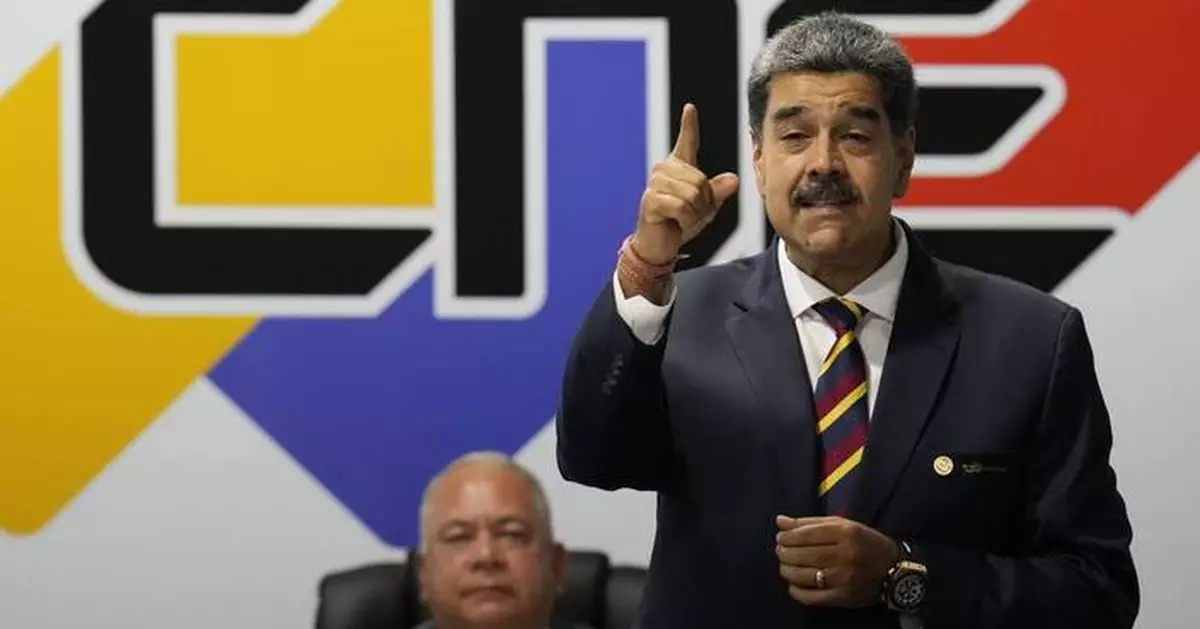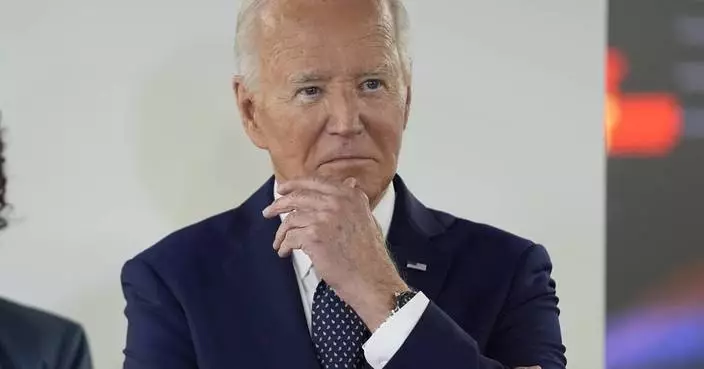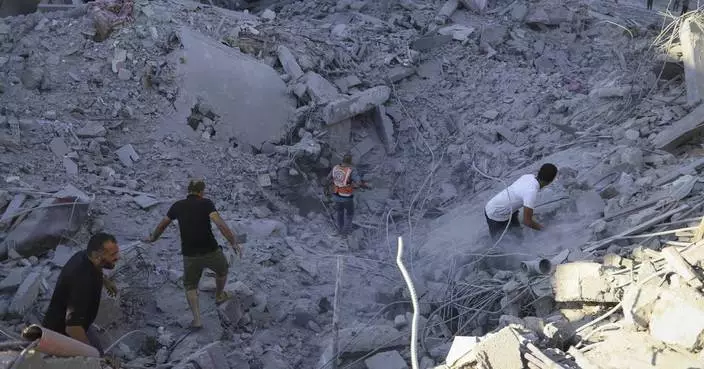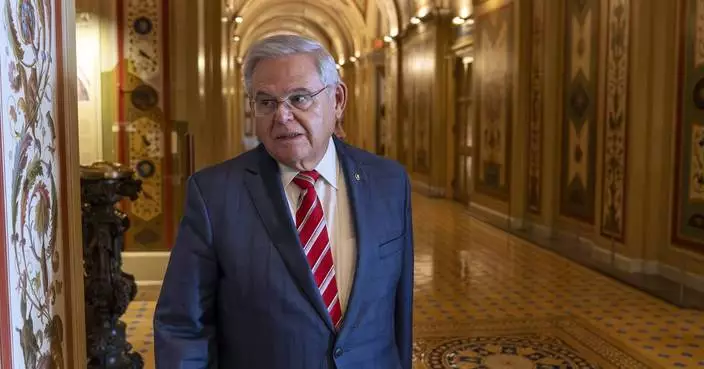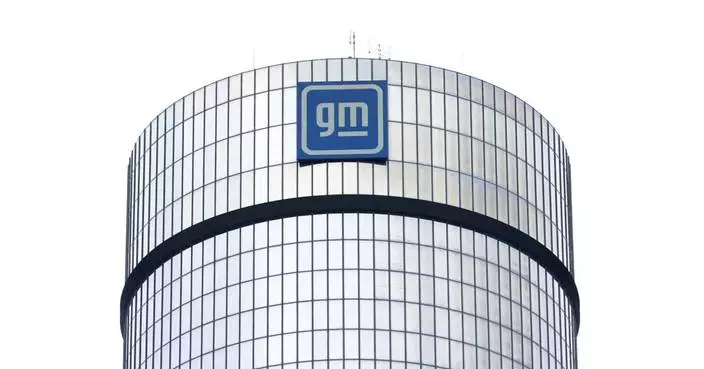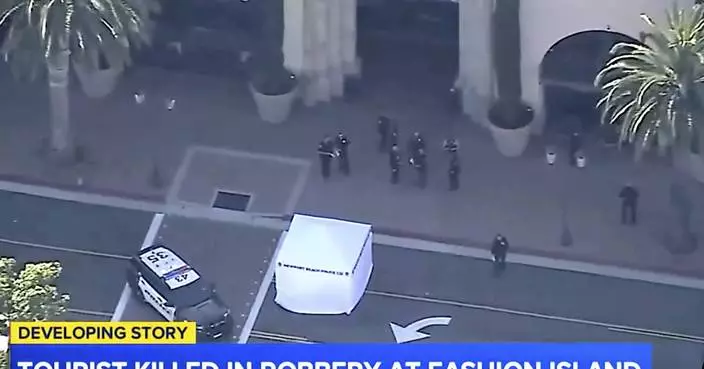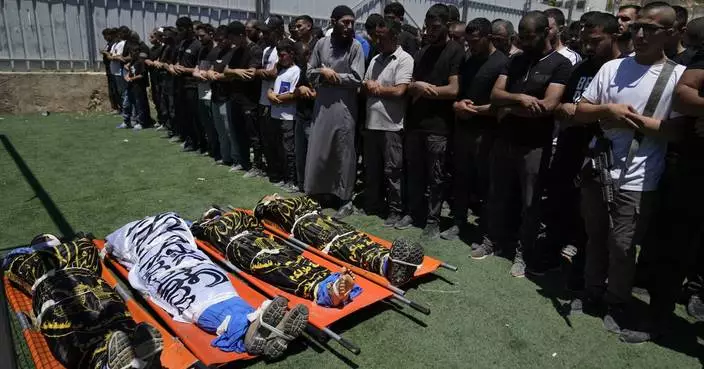CARACAS, Venezuela (AP) — Venezuela’s government plans to resume negotiations with the U.S. government this week, President Nicolás Maduro announced Monday, less than a month before a highly anticipated election in which he and his party are facing their toughest challenge in decades.
Maduro, who is seeking a third term, wants the U.S. government to lift crippling economic sanctions that were imposed over the last decade in an effort to topple him. He characterized the dialogue as “urgent” during his weekly TV show.
The Biden administration did not immediately respond to a request for comment from The Associated Press.
“I have received the proposal during two continuous months from the United States government to reestablish talks and direct dialogue,” Maduro said. "After thinking about it for two months, I have accepted, and next Wednesday, talks will restart with the United States government to comply with the agreements signed in Qatar and to reestablish the terms of the urgent dialogue.”
Maduro's government had held parallel talks with the Biden administration and with the U.S.-backed Unitary Platform opposition coalition. But they were suspended as he reneged on promises, including to improve conditions ahead of the election, and his government accused the U.S. of not fulfilling portions of agreements.
Some negotiations with the U.S. happened in Qatar. It was not immediately clear where the latest round of dialogue will take place.
The July 28 election is shaping up to be the biggest challenge the ruling United Socialist Party of Venezuela has faced in its 25-year dominance that began when the fiery Hugo Chávez became president. The party wants to maintain its absolute government control for six more years, but its base is divided, diminished and disappointed after experiencing a complex social, economic and political crisis for 11 years — the entirety of Maduro's presidency.
Ten candidates, including Maduro, will be on the ballot. The only contender with a real chance of defeating the president is Edmundo González Urrutia, who represents the opposition’s Unitary Platform coalition.
Last year, Maduro entered into an agreement with the opposition coalition to work toward improving conditions for a free and fair election. But he changed course as the meteoric rise of opposition leader Maria Corina Machado turned into a real threat to his reelection prospects.
The U.S. granted Maduro’s government relief from sanctions on its state-run oil, gas and mining sectors after he entered into the agreement with the opposition. But the Biden administration ended the relief as Maduro's ruling party continued to use its control over all government institutions to tilt the balance in his favor, including by blocking Machado's candidacy.
Machado's chosen substitute was barred from the ballot, too. She and the coalition are now backing González, a former diplomat.
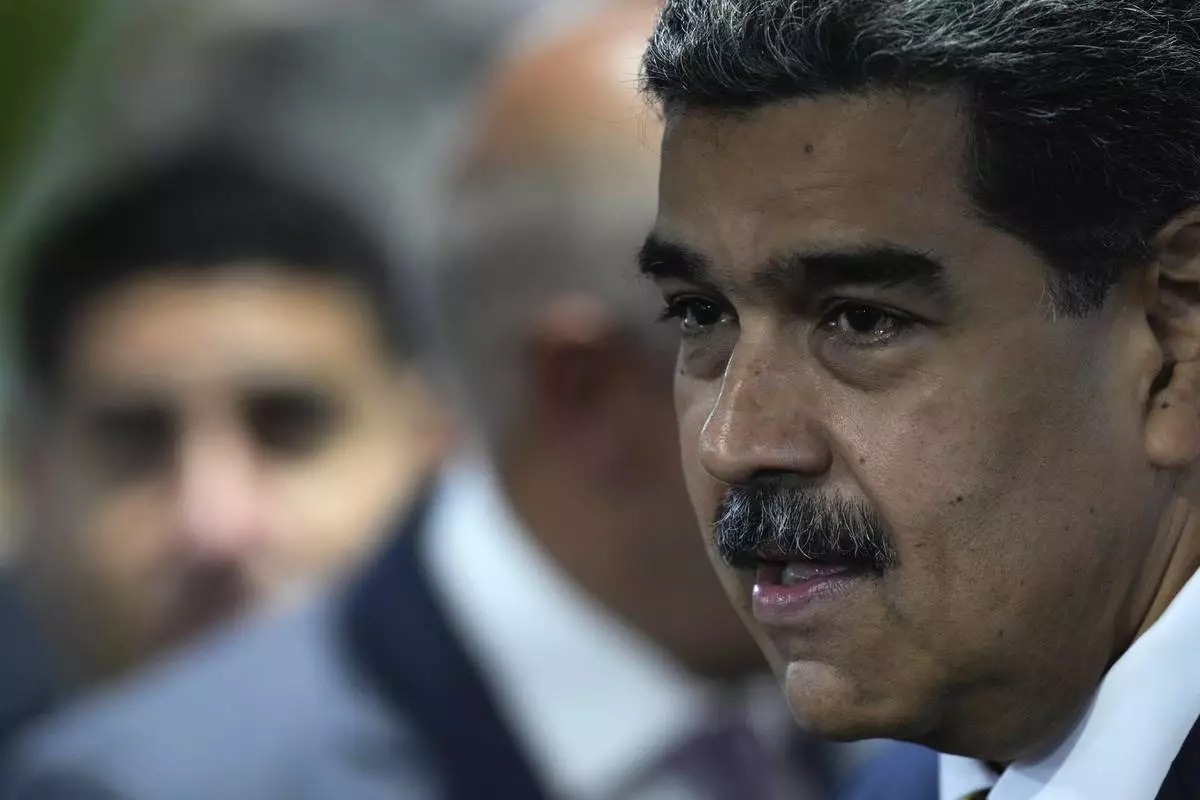
Venezuelan President Nicolas Maduro attends a signing an agreement to respect the results of the upcoming presidential elections, at the National Electoral Council headquarters in Caracas, Venezuela, Thursday, June 20, 2024. (AP Photo/Ariana Cubillos)
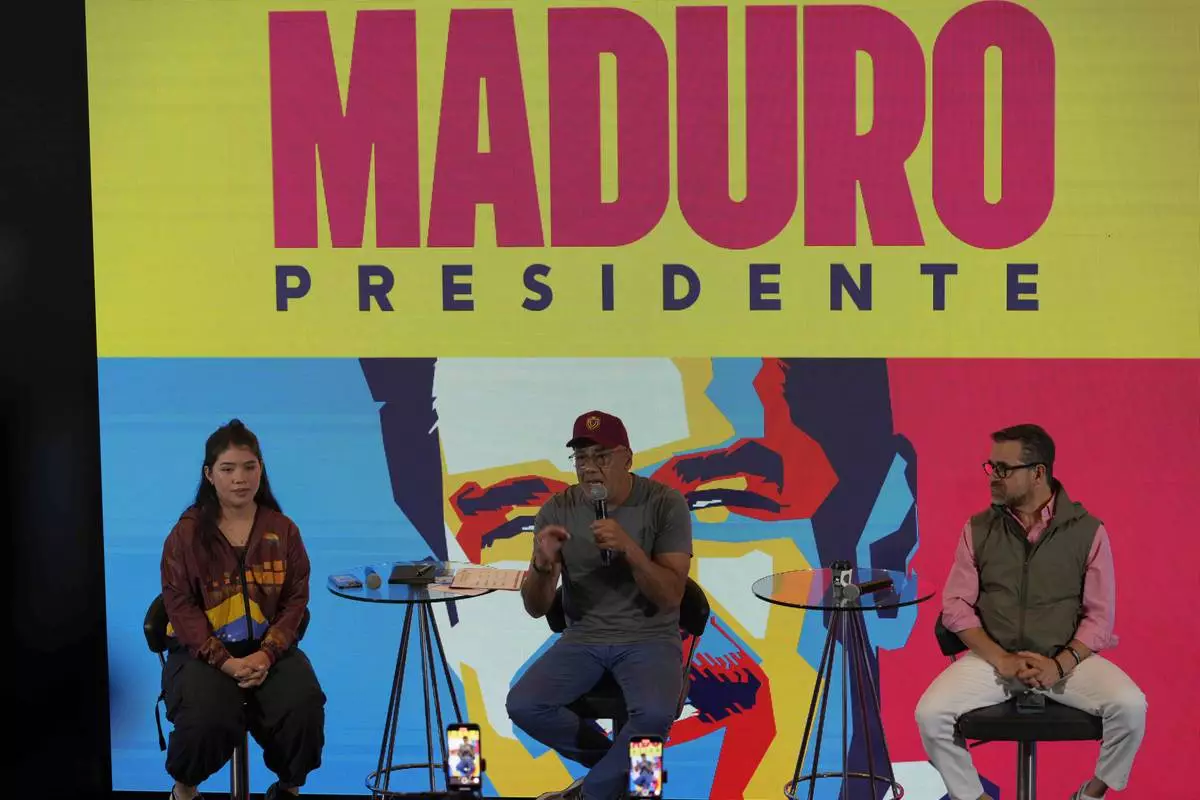
President of Venezuela's National Assembly Jorge Rodriguez, center, speaks during a press conference alongside legislator Genesis Garvett, left, and Governor Rafael Lacava in Caracas, Venezuela, Monday, July 1, 2024. Rodriguez announced that the campaign for the July 28 presidential election will start on July 4. (AP Photo/Ariana Cubillos)
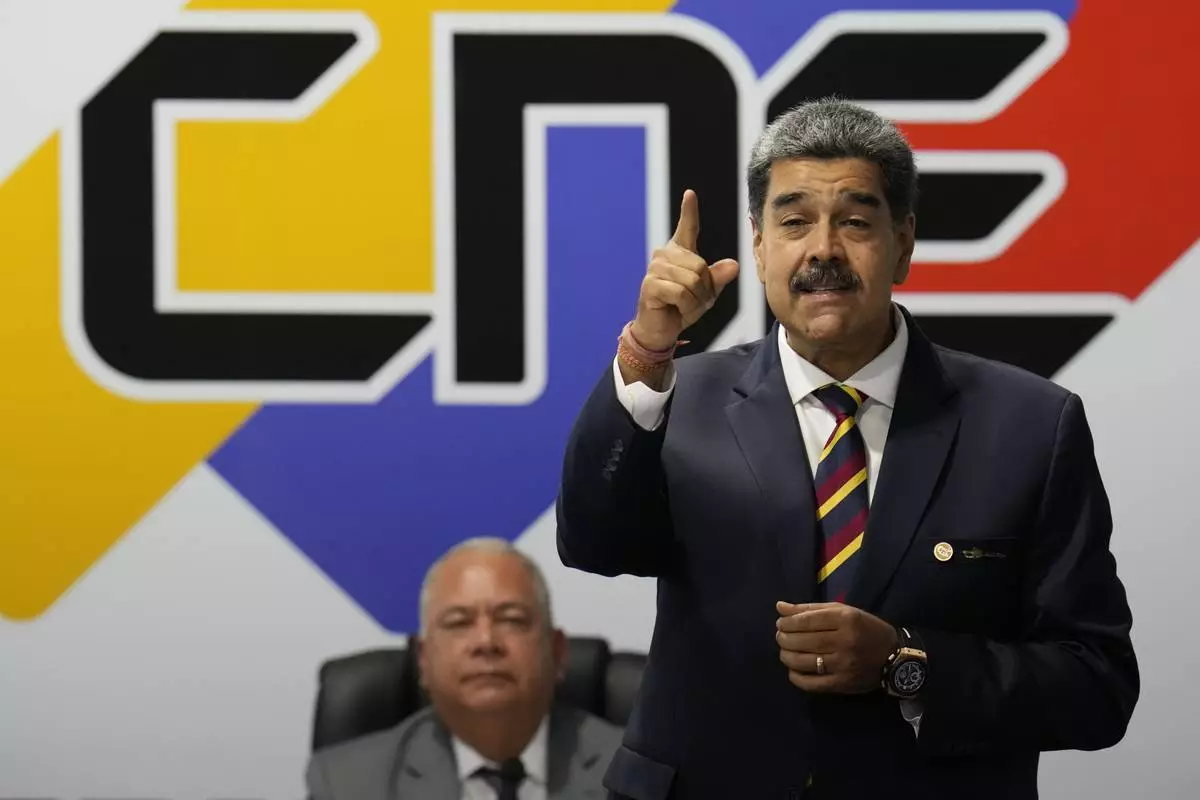
Venezuelan President Nicolas Maduro speaks after signing an agreement to respect the results of the upcoming presidential elections, at the National Electoral Council headquarters in Caracas, Venezuela, Thursday, June 20, 2024. (AP Photo/Ariana Cubillos)
Amid blistering summer temperatures, a federal judge ordered Louisiana to take steps to protect the health and safety of incarcerated workers toiling in the fields of a former slave plantation, saying they face “substantial risk of injury or death.” The state immediately appealed the decision.
U.S. District Judge Brian Jackson issued a temporary restraining order Tuesday, giving the state department of corrections seven days to provide a plan to improve conditions on the so-called Farm Line at Louisiana State Penitentiary, otherwise known as Angola. The expansive penitentiary occupies land that once was a plantation.
Jackson called on the state to make changes to policies dealing with heat. He pointed to everything from inadequate shade and breaks from work and a failure to provide workers with sunscreen and other basic protections, including medical checks for those especially vulnerable to high temperatures. However, the judge stopped short of shutting down the farm line altogether when heat indexes reach 88 degrees Fahrenheit (31.1 degrees Celsius) or higher, which was what the plaintiffs had requested.
The order comes amid growing nationwide attention on prison labor, a practice that is firmly rooted in slavery and has evolved over the decades into a multibillion-dollar industry. A two-year Associated Press investigation linked the supply chains of some of the world’s largest and best-known companies – from Cargill and Walmart to Burger King – to Angola and other prison farms, where incarcerated workers are paid pennies an hour or nothing at all.
Last year several men incarcerated at Angola and the advocacy group Voice of the Experienced (VOTE) filed a class-action lawsuit alleging cruel and unusual punishment and forced labor in the prison’s fields. The men, most of whom are Black, said they use hoes and shovels or stoop to pick crops by hand in dangerously hot temperatures as armed guards look on. If they refuse to work or fail to meet quotas, they can be sent to solitary confinement or face other punishment, according to disciplinary guidelines.
As temperatures across the state continue to rise, “dealing with the heat in Louisiana has become a matter of life and death,” Jackson wrote in his 78-page ruling. “Conditions on the Farm Line ‘create a substantial risk of injury or death.’”
Lydia Wright of The Promise of Justice Initiative, an attorney for the plaintiffs, applauded the decision.
“The farm line has caused physical and psychological harm for generations,” she told the AP, adding it is the first time a court has found the practice to be cruel and unusual punishment. “It’s an incredible moment for incarcerated people and their families.”
Ken Pastorick, a spokesman for Louisiana’s Department of Public Safety and Corrections, said the department “strongly disagrees” with the court’s overall ruling and has filed a notice of appeal with the 5th Circuit Court of Appeals.
“We are still reviewing the ruling in its entirety and reserve the right to comment in more detail at a later time,” he said.
—-
Contact AP’s global investigative team at Investigative@ap.org or https://www.ap.org/tips/
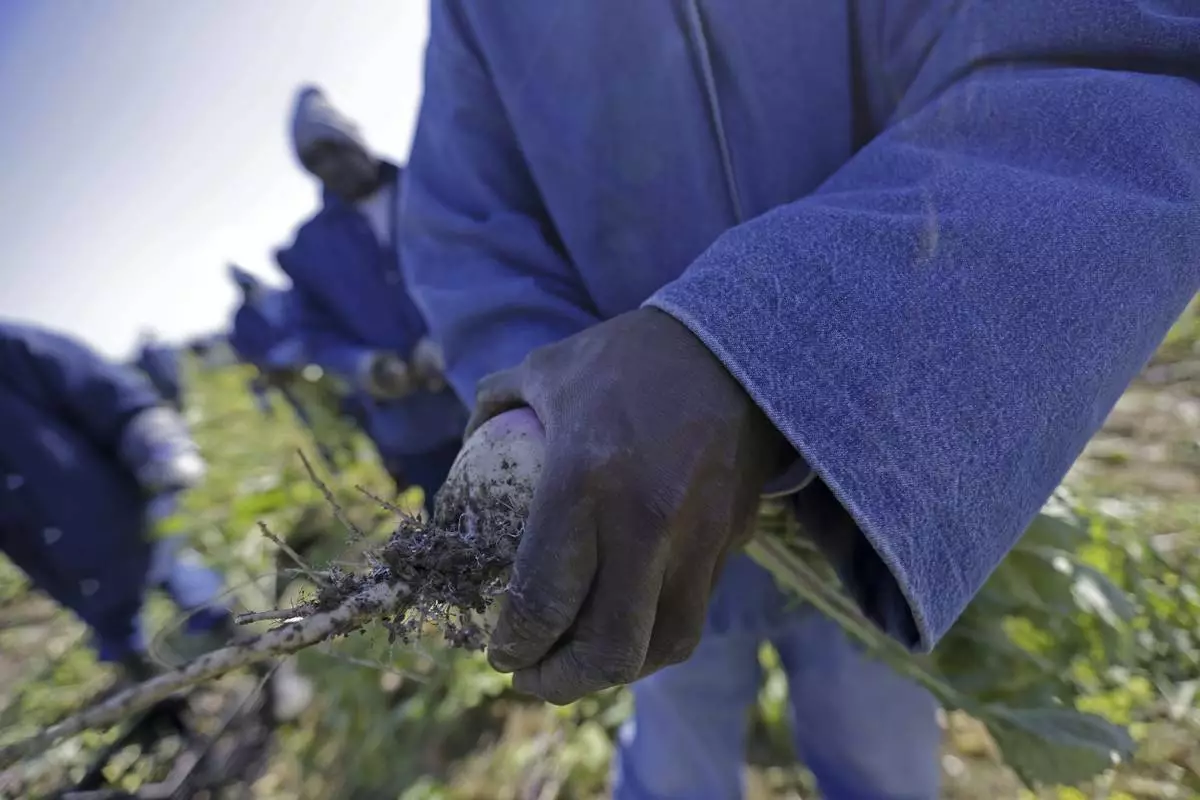
FILE - Inmates harvest turnips at the Louisiana State Penitentiary in Angola, La., on April 15, 2014 . U.S. District Court Judge Brian Jackson issued a temporary restraining order Tuesday, July 3, 2024, giving the state department of corrections seven days to provide a plan to improve conditions on the so-called Farm Line at Louisiana State Penitentiary, otherwise known as Angola. (AP Photo/Gerald Herbert, File)
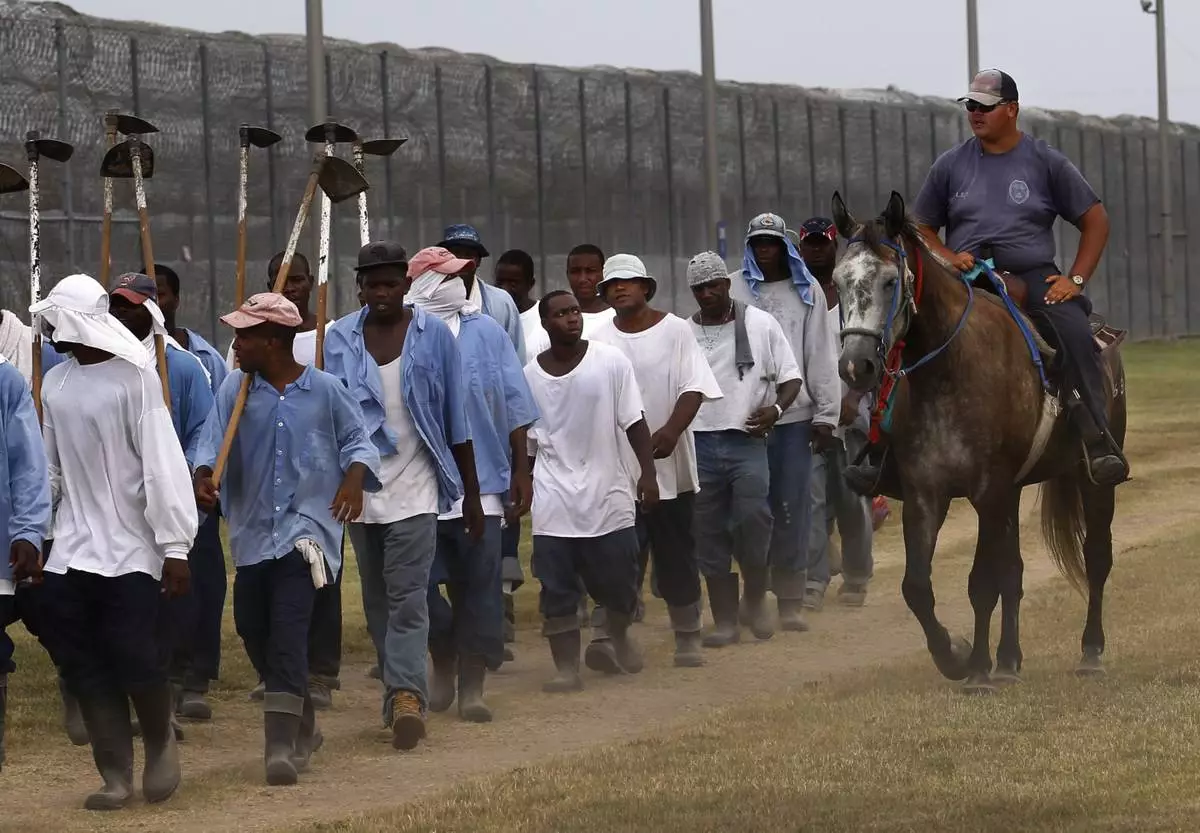
FILE - A prison guard rides a horse alongside prisoners as they return from farm work detail at the Louisiana State Penitentiary in Angola, La., on Aug. 18, 2011. U.S. District Court Judge Brian Jackson issued a temporary restraining order Tuesday, July 3, 2024, giving the state department of corrections seven days to provide a plan to improve conditions on the so-called Farm Line at Louisiana State Penitentiary, otherwise known as Angola. (AP Photo/Gerald Herbert, File)





